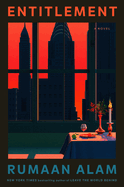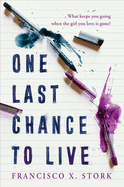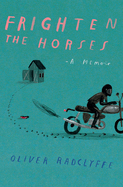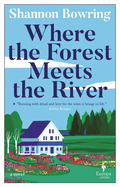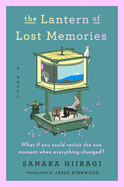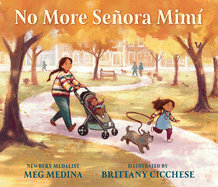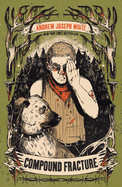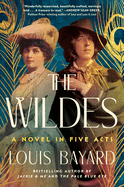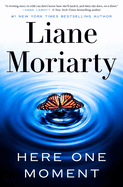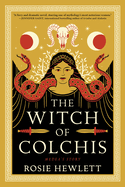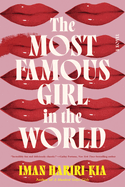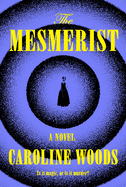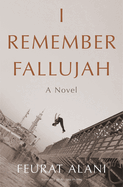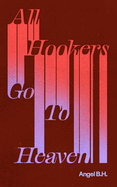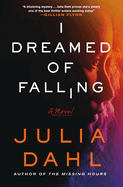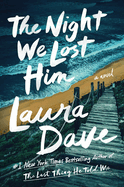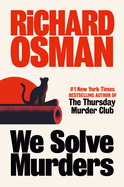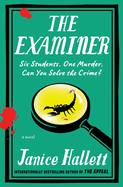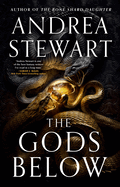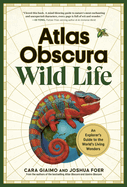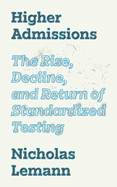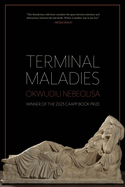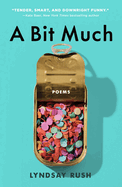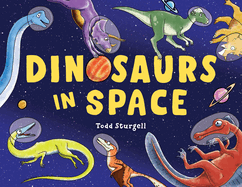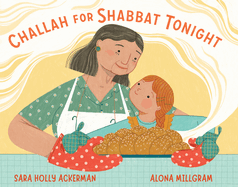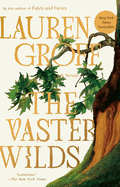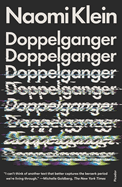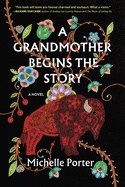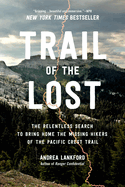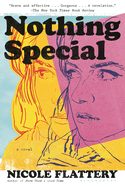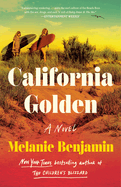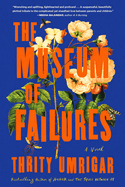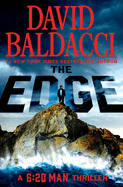Friday, September 20, 2024
This week we spotlight several quiet stories that are nonetheless deeply felt. Where the Forest Meets the River by Shannon Bowring is "a gorgeous, poignant drive through the sun and shadow of shared grief in small-town Maine" brought to life with "a collection of vivid, lovable characters"; and The Lantern of Lost Memories by Sanaka Hiiragi is "an enchanting novel" that "captures the special quality of a single moment in life with equal parts pathos and joy." Plus, One Last Chance to Live by Francisco X. Stork is "a nuanced dive into suicidal ideation" after a young writer learns his mentor has died; it's "written in a close, achingly honest voice" and underscored by "profound and believable hope."
Meanwhile, in The Writer's Life, Oliver Radclyffe discusses his memoir, Frighten the Horses, and the thrill of being published in a time when trans writers and artists are being celebrated, saying, "Every one is different, every one is amazing and bringing something different and new to this canon."
Entitlement
by Rumaan Alam
Rumaan Alam (That Kind of Mother; Leave the World Behind) offers a slow-burning, insidiously creepy study of money and culture in his quietly distressing novel Entitlement.
Native Manhattanite Brooke, at 33, feels hopeful about her new job at a charitable foundation. She's not professionally ambitious so much as she yearns for a little more than she has. The new job is initially just that--until she forms a special bond with the octogenarian billionaire, the famously self-made Asher Jaffee, whose money she disburses. Brooke embraces his advice to "Demand something from the world. Demand the best. Demand it." As she sinks into the sumptuous life Asher invites her into, Brooke becomes increasingly confident in the demands she makes of the world, sure that she is doing good and doing well. With Alam's signature tone of building foreboding, however, the reader becomes less and less sure.
Money is at the heart of Entitlement: what money can and cannot buy; how to give away Asher's; where Brooke can find more for herself. Her financial status is, if not perfectly secure, not uncomfortable. Meanwhile, race is a more understated part of her story. Brooke, a Black woman with a white mother and a white brother (she's adopted), "spent most of her time with white people, who never discussed the allegiance of race, because they did not need to."
Alam is ever adept and incisive with the subtle examination of interpersonal as well as systemic issues: race, class, ambition, avarice. Entitlement provides a deceptively silky backdrop for the kinds of thrillingly uncomfortable questions at which Alam excels. --Julia Kastner, librarian and blogger at pagesofjulia
Discover: With an atmosphere that is sexy, enchanting, and unsettling, Rumaan Alam's expert fourth novel probes concepts of privilege, wealth, value, and morality.
Where the Forest Meets the River
by Shannon Bowring
Where the Forest Meets the River is a gorgeous, poignant drive through the sun and shadow of shared grief in small-town Maine. Shannon Bowring deftly brings to life a collection of characters as they struggle with the long-term impact of Bridget Theroux's death by suicide, which happened in Bowring's first novel, The Road to Dalton.
Bridget's widower, Nate, cares for their child. He's bowled over by the love and affection he feels for his daughter while he tries to navigate his own needs. His mother, Bev, is having a long, intimate affair with cantankerous librarian and gardener Trudy Haskell. Bowring's depiction of their relationship is as tender as it is multilayered: "Nearly twenty years since they met... and still neither is a whole person unless the other is right there beside her." But their bond is threatened when Trudy's husband has a heart attack.
Although this is a sequel, it absolutely stands on its own. Its pace is deliberate and thoughtful as Bowring takes the time to examine her characters' inner worlds with moving complexity and to vibrantly depict summer in northern Maine.
These are characters to love--memorable and vividly rendered in elegant, understated prose. It's a large cast, but each member is so distinctly crafted that they are impressively easy to track. Bowring's writing shines just as brightly in its admirably specific descriptions of nature and setting. Catbirds imitating other birdcalls and "a bench beneath the lone elm that survived the plague of the 70s"--these are the kinds of details that elevate a novel into a literary gem. --Carol Caley, writer
Discover: Where the Forest Meets the River is a gorgeous, poignant drive through the sun and shadow of shared grief in small-town Maine that brings to life a collection of vivid, lovable characters.
The Lantern of Lost Memories
by Sanaka Hiiragi, transl. by Jesse Kirkwood
In a photo studio located on the boundary between life and death, Mr. Hirasaka helps newly deceased souls move on by having them choose photos from their life to view on a spinning lantern. Sanaka Hiiragi's The Lantern of Lost Memories, translated from the Japanese by Jesse Kirkwood, weaves Hirasaka's work through the stories of three souls passing through his studio for an affecting rumination on life, purpose, and the memories that hold it all together.
These souls led very different lives, but Hirasaka treats them all with genuine empathy: a woman named Hatsue Yagi who died at 92; yakuza boss Shohei Waniguchi, murdered at age 47; and Mitsuru Yamada, a young girl whose death was caused by horrific abuse. Hatsue and Waniguchi discover that their most important photos are faded, and Hirasaka offers to take them back in time armed with a camera of their choice to recapture those moments for their lanterns. While he helps others review their memories through photos, Hirasaka himself can't remember anything and has no photos of his own--except one ordinary one whose story he doesn't know. He spends his existence ushering people through the studio, all the while waiting for someone who might trigger his memories.
Hiiragi captures the special quality of a single moment in life with equal parts pathos and joy as the deceased reminisce and watch their past selves from a distance. Though filled with surprises, The Lantern of Lost Memories is the perfect cozy novel. --Dainy Bernstein, freelance reviewer
Discover: An enchanting novel about looking back on life after death, The Lantern of Lost Memories follows three souls reflecting on their lives’ most precious moments.
The Wildes
by Louis Bayard
Countless books have been written about the famed Irish playwright Oscar Wilde, but the lasting effects on his family of his 1895 incarceration for then-illegal homosexual acts have garnered less attention. Enter into this vacuum Louis Bayard's The Wildes. Wilde is very much a presence here, but the people being talked about more in this fine work are his family. In the long opening act, set during a summer idyll in 1892 in Norfolk, England, Wilde's wife, Constance, wants to know more about "the chap who's coming tomorrow." That chap is Lord Alfred Douglas, the latest in "the procession of narrow-chested young men, each younger than the last, each astonished by his privilege" whom Oscar has brought home. Constance soon realizes that Lord Alfred is visiting for more than to help her husband translate Salomé from French into English.
After an equally moving second act set in 1897, in which Constance, living under an assumed name, tries to reclaim her life, the remainder of the novel focuses on the couple's sons. In 1915, World War I captain Cyril demonstrates he has learned the hard lesson that "there is no use mourning what is lost." Then, in 1925, son Vyvyan has an uncomfortable reunion with Lord Alfred after a Noël Coward play. Bayard (Jackie & Me) employs the dialogue-rich, my-dear-boy style of writing one might expect from a faithful imagining of Oscar Wilde and the rest of that crowd, and it works well. Those who can't get enough of Wilde and his legacy will welcome this accomplished work. --Michael Magras, freelance book reviewer
Discover: Louis Bayard explores the effect of Oscar Wilde's 1895 imprisonment on his wife and sons in this accomplished, dialogue-rich novel.
Here One Moment
by Liane Moriarty
"Later, not a single person will recall seeing the lady board the flight at Hobart Airport." So begins Liane Moriarty's intriguing Here One Moment. By the time the passengers disembark, they will all have been deeply unsettled by the woman later deemed "the Death Lady."
After everyone settles in for the flight to Sydney, Australia, a silver-haired woman steps into the aisle and walks the length of the plane, pointing at each passenger and announcing their cause and age of death, e.g. "I expect pancreatic cancer. Age sixty-six." Even children are not spared from her awful predictions; the woman points to a baby sleeping in his mother's arms and proclaims, "Drowning... Age seven." Occasionally she adds, "Fate won't be fought."
Some on board dismiss the woman's declarations, but after the flight, some passengers become obsessed with preventing her predictions from coming true. The anxiety intensifies when reports start hitting the news that a few passengers have died--from the exact causes the Death Lady "expected."
Moriarty's meditation on fate, free will, and mortality, told from the points of view of the Death Lady and a number of passengers, asks: If we could know when we'll die, how would we spend our remaining time? Would we stress out and try to fight the inevitable, or would we make the most of every day and absorb as much joy as possible? The novel also asks whether psychic powers could be real. Moriarty (Nine Perfect Strangers) handles these big questions and more in an absorbing way, without pushing for easy answers but instead reminding readers of what's important in life and that happiness can be a choice. --Elyse Dinh-McCrillis, reviewer and freelance editor at The Edit Ninja
Discover: Liane Moriarty explores big issues, including life and death, grief and love, and fate and free will, in the engrossing, contemplative Here One Moment.
The Witch of Colchis
by Rosie Hewlett
A legendary witch and murderer takes center stage in a particularly vulnerable portrayal of her life story in Rosie Hewlett's The Witch of Colchis, originally published in the United Kingdom as Medea.
Ever since she was a child, Medea was reviled for her talent for magic. Although she was a princess, her father was abusive, her brother cruel, and her mother distant. She had a brief reprieve for a few years when she was allowed to study with her aunt, the sorceress Circe. As she matured, her father put her magic to use but valued her only as a tool. When the quest for the Golden Fleece brings Jason to her father's kingdom, is it any wonder that Medea is willing to open herself to the darkest magic to seize her opportunity to escape?
Hewlett's retelling of Medea's story remains largely faithful to classical sources in terms of events, but the way she unites stories from Apollonius Rhodius's Argonautica, Euripides's Medea, and beyond, with focuses on Medea's youth at her meeting with Jason and her tightly circumscribed life as the daughter of a ruthless king, lends the novel an additional layer of pathos. Euripides's Medea might be a sympathetic figure of righteous fury, but Hewlett's version hints at her trauma and depression, conditions for which Medea does not have words, given the time in which she lived. Although Hewlett's prose is less poetic than Madeline Miller's Circe, readers of that novel who need more powerful women of mythology will be well served by The Witch of Colchis. --Kristen Allen-Vogel, information services librarian at Dayton Metro Library
Discover: Medea's full story comes together in this epic and vulnerable tale of her desperate search for self-determination.
The Most Famous Girl in the World
by Iman Hariri-Kia
Smoldering with dangerous intrigue, The Most Famous Girl in the World by Iman Hariri-Kia (A Hundred Other Girls) features a young journalist hot on the trail of a beautiful con artist posing as a wealthy socialite. Readers will find Hariri-Kia's action-packed plot as entertaining as her deeply flawed narrator's lively, profanity-laden inner dialogue in a story heavily flavored with comedic mishaps and sexual drama.
One could say that anxiety-prone New Yorker Rose Aslani has something of an obsessive nature. Eking out a living at a publication known for its "quippy headlines," Rose must navigate not only a difficult boss but also her own tendency to self-sabotage. While everyone else is awed by enigmatic socialite Poppy Hastings, a convicted-fraudster-turned-Internet-sensation, Rose is convinced Poppy is responsible for a series of gruesome murders. And she'll do anything to prove it, no matter the cost to her career.
Everyone has something to hide in Hariri-Kia's marvelous second novel. After being mocked as a child for her Iranian heritage, Rose masks feelings of dislocation and otherness by keeping people at arm's length. All that changes when she meets Simon, a shockingly handsome FBI agent investigating Poppy. At first she can't stand sanctimonious Simon and his condescending attitude, but they soon join forces as more people in Poppy's orbit turn up dead.
With a brilliant, deviously clever ending, The Most Famous Girl in the World exposes the dangers inherent in online celebrity culture's tendency to reward bad behavior and tenderly captures a young woman's struggle to be comfortable in her Middle Eastern-American skin. --Shahina Piyarali
Discover: A New York journalist is convinced a popular socialite is guilty of murder in this deviously clever story heavily spiced with comedic mishaps and sexual drama.
The Mesmerist
by Caroline Woods
Caroline Woods's third novel, The Mesmerist, entrances and intrigues with its thrilling mix of fact and fiction. Set in Minneapolis at the turbulent end of the 19th century, in the wake of the latest banking panic, this murder mystery features a number of historical figures and composites, and invokes the spiritualism of the time.
The novel begins with the arrival of Faith, a young woman who sets the Bethany Home of Unwed Mothers off-kilter. Not only is Faith ostensibly mute, she possesses an unearthly beauty, and her very presence seems to spark a chain of unfortunate events. While most of the girls lay blame on their mysterious new housemate, Faith's roommate, May, befriends her. May endeavors to leave Bethany House with a ring on her finger, while Faith seems terrified of leaving altogether. As May's present and Faith's past collide, all hell breaks loose, including women routinely turning up dead.
Woods (The Lunar Housewife) shines a light on the outcasts of society: prostitutes, madams, unwed mothers, and the poor. Discerning readers will detect what Woods does so well, which is to complicate simple female archetypes--such as the crone, the mother, and the harlot--by having characters occupy many of these roles simultaneously or move between them fluidly. While relationships with men propel the novel, the relationships women form with each other are front and center.
Woods takes care to highlight the oppressive environment of late Victorian America, where freedom is perhaps best won for women by becoming a wealthy widow. Yet ever an author of complication, Woods avoids painting any one identity or life path as ideal. --Nina Semczuk, writer, editor, and illustrator
Discover: A gripping historical mystery novel, set in a 19th-century Minneapolis home for unwed mothers, explores identity, friendship, and much more.
I Remember Fallujah
by Feurat Alani, transl. by Adriana Hunter
French journalist and filmmaker Feurat Alani infuses his poignant debut novel, I Remember Fallujah, with an affecting blend of the personal and fictional, the political and historical. Prolific literary translator Adriana Hunter gracefully provides English access. Alani's narrative is tri-fold: a contemporary doubly tragic cancer/amnesia diagnosis; a father's Iraqi origins in the 1950s; his son's French coming-of-age since the 1980s. What emerges is a polyphonic reclamation of lost memories--of family, ideals, culture, homeland.
Tragedy defined Rami's Fallujah childhood growing up along the Euphrates River. His mother's death in 1952, when he was eight, precipitated years of abuse after his father married a cruel widow with abusive sons. Twenty years later, in 1972, Rami entered France as a refugee, with "an unvoiced dream: To build a successful life far away from Iraq... [without] prisons for idealists." For decades, Rami truncated his son Euphrates's questions about Rami's past with "It's too complicated." And then came August 2, 2019, "the day my father lost his memory." Before Rami succumbs to stage IV lung cancer, Euphrates hopes to "reclaim the lost memories together." Releasing his father's past will enable French-born Euphrates to understand his own multilayered legacy.
Alani is a spare, succinct writer, no doubt a result of his journalistic background. His fiction is clearly inspired by autobiographic parallels to his family's Fallujah-to-Paris journey; particularly notable is the insertion of his own name--Euphrates in Arabic is al-Furāt--with only Euphrates's chapters presented in first-person narration. That "I" resonates throughout with a palpable, empathic longing to know. --Terry Hong
Discover: French Iraqi author Feurat Alani's illuminating debut novel, I Remember Fallujah, adroitly reclaims lost memories of family, homeland, history.
All Hookers Go to Heaven
by Angel B.H.
All Hookers Go to Heaven is an electrifying debut novel, as thoughtful as it is harrowing. Magdalena has been raised in a highly puritanical tradition of small-town evangelical Christianity. Determined to reach heaven, she renounces the hormonal explorations of her contemporaries, until a kiss with an irresistible and unpredictable classmate sparks Magdalena's queer awakening at Discipleship Training School. She then abandons her Christian tenets and flings herself into the world of sex work.
As Magdalena chases professional opportunities across continents, the most rewarding aspect of Angel B.H.'s All Hookers Go to Heaven is the motley crew she accumulates along the way. They are loud, queer, and deeply caring toward one another, creating a heartening portrait of found family: "Only one thing was certain: I had angels all around me."
Still, Magdalena has no place to call home. She encounters violent clients and police officers, and is haunted by the ghost of her evangelical upbringing, so she turns repeatedly to booze and constantly represses her feelings. As her masochism and avoidance reach increasingly dire heights, readers will hold their breath and will her into survival.
All Hookers Go to Heaven is a distinctly innovative addition to the canon of sex-work fiction and represents a breadth of experiences and personalities. The narrative treats them with unrelenting tenderness and fascinating development. Each character is painstakingly crafted in a way that sex workers in fiction rarely seem to be. Written in meditative and candid prose, All Hookers Go to Heaven is a gutsy, erotic, and staunchly anticapitalist novel. --Jess M., bookseller
Discover: This gutsy, erotic, and staunchly anticapitalist debut novel is written in meditative and candid prose.
Mystery & Thriller
I Dreamed of Falling
by Julia Dahl
Knowing a person all their life doesn't guarantee an understanding of all the secrets or fears harbored in their heart, as Julia Dahl (Invisible City) explores in her superb character-driven psychological thriller I Dreamed of Falling.
Ashley Lillian and Roman Grady have been in love since they were 13 years old. They've "proved everyone wrong," surviving chaotic childhoods, Ashley's history of drug use, and "when Ashley came out as bisexual and they opened the relationship." Their challenges increased when Ashley experienced postpartum depression following the birth of their son, Mason, who is now four years old. Money is tight: Roman is the only reporter at the newspaper in their tiny Hudson River Valley town of Adamsville, N.Y., and Ashley teaches yoga. The couple lives with Roman's controlling mother, Tara, who assumes most of the responsibility for Mason's care, and Tara's fiancé, John. Ashley's secrets tumble out when her body is found on the cliffside below the home of her former lover, a bag of pills in her pocket. At first, the police suspect Ashley's death is due to an accidental overdose. Roman wonders if Ashley returned to drugs, unable to "win against the sadness in her brain." But the evidence soon points to murder.
Dahl skillfully elevates the suspense while deploying Adamsville's economic decline as a metaphor for her characters' ennui about the smallness of their lives. Roman believes that "without Ash they were a tiny fraction of what they'd been." Meanwhile, although Tara neglected Roman as a child, her obsessiveness about Mason's well-being strains the household.
Grief, guilt, and an uncertain future punctuate the emotional I Dreamed of Falling. --Oline H. Cogdill, freelance reviewer
Discover: The murder of a young mother throws her dysfunctional family into a morass of grief in this suspenseful domestic thriller.
The Night We Lost Him
by Laura Dave
Siblings overcome years of estrangement to investigate their beloved father's sudden death in Laura Dave's seventh novel, The Night We Lost Him. Dave (The Last Thing He Told Me; Eight Hundred Grapes) combines the mystery of a fatal fall with slowly revealed secrets from a family's past in this compelling drama narrated by Nora, a grieving daughter willing to take risks to discover the truth.
Liam Noone, affluent hotel magnate, was the father of three grown children from two of his three marriages. His plunge from a cliff at his secluded California beachside home was investigated and ruled accidental, but when Sam, the brother Nora barely knows, refutes the results of the investigation, he entreats her to join his search for details. They rule out suicide, and although Liam was respected and well-liked, Nora admits she "can't shake a lingering suspicion when something feels off." The two travel to Liam's beach house and follow hunches that confirm their original doubts but raise new ones. "Why are there so many secrets in this family?" Nora asks the brother she has come to appreciate.
Dave ratchets up the suspense by alternating the siblings' quest with chapters about Liam's life that begin 51 years ago and end shortly before his fatal fall. Understanding Liam better than his children ever did enhances readers' sympathy for him, but Dave still withholds critical details, sustaining the mystery until the novel's climax. A poignant relationship lies at the heart of this gripping and multilayered story of well-meaning characters who navigate secrets and find love down every path they follow. --Cheryl McKeon, Book House of Stuyvesant Plaza, Albany, N.Y.
Discover: Estranged adult siblings who investigate their father's death discover unexpected truths in Laura Dave's poignant, compelling novel.
We Solve Murders
by Richard Osman
Fans of the Thursday Murder Club mystery series (The Bullet That Missed; The Last Devil to Die) may never tire of it, but one can't begrudge author Richard Osman for trying something new. Perhaps he was finding things getting a little too cozy in Coopers Chase, spurring him to create the high-anxiety but hilarious We Solve Murders.
Retired cop turned private investigator Steve Wheeler essentially lives in a cozy mystery. He's a quietly heartbroken widower residing in the English village of Axley, where pub quizzes are all the adventure he craves. About as cozy as a stomachache is the career of his daughter-in-law, Amy, a bodyguard with Maximum Impact Solutions. She's currently protecting Rosie D'Antonio--"the world's best-selling novelist, 'if you don't count Lee Child' "--on the writer's private South Carolina island. Only when Amy, fearing for her own life, phones Steve for help is he willing to leave Axley--provided he can find a cat sitter.
If Steve belongs in a cozy mystery and Amy in an action thriller, what's the upshot when they join forces? Farce of the highest order. We Solve Murders sends up influencers, egomaniacal actors, ChatGPT, and more, but the novel's centerpiece is the relationship between Amy and Steve. (Thinks Steve at one point: "It's not every daughter-in-law who will high-five you when you've shot a drug dealer in a Coldplay T-shirt, is it?") Great news: these characters will get another vehicle, according to Osman's acknowledgments, which are almost as entertaining as the book itself. --Nell Beram, author and freelance writer
Discover: The cozy mystery meets the action thriller in the higher-order farce that is We Solve Murders, the first title in a new series by the author of the Thursday Murder Club books.
The Examiner
by Janice Hallett
Told in Janice Hallett's trademark style, using e-mails, chat transcripts, texts, and more, The Examiner follows six students pursuing degrees in a multimedia art course at Royal Hastings, University of London. The instructor, Gela, desperately needs this pilot course to go smoothly so that the art department won't lose even more funding. She has handpicked the students, but some of her choices are questionable--for one, a couple of the participants lack actual experience in creating art--and the conflicts and drama start from day one.
Despite these tensions, everyone must work together toward their final project, a launch party presentation for a cloud-based tech company announcing its new product. The assignment includes a road trip to collect materials. Shortly before the final installation, an outside examiner is brought in to make sure the students receive a fair grade. As he reviews their final essays, e-mails, and the course's message boards, however, the examiner raises an alarm, because he believes something horrible, perhaps lethal, has happened to one of the students--that five went on the road trip but only four came back. And the examiner suspects a cover-up is in effect.
Hallett (The Appeal) is a master of the epistolary voice. She loses nothing of her ability to create vivid characters and surprising plot twists while eschewing conventional narrative descriptions and prose. The format fits the story well, enabling Hallett to keep details hidden and maintain the mystery. Whatever readers guess is happening, they're likely wrong, and their feelings and allegiances toward each character will fluctuate with each revelation. It all adds up to an entertaining and unpredictable experience. --Elyse Dinh-McCrillis, reviewer and freelance editor at The Edit Ninja
Discover: Janice Hallett's engaging epistolary mystery investigates a suspected death and cover-up in a university art class.
Science Fiction & Fantasy
The Gods Below
by Andrea Stewart
Two sisters fight for survival in a world left in turmoil from a cataclysmic war between the gods in Andrea Stewart's The Gods Below, the epic first book of the Hollow Covenant series.
When Hakara was 15 and her sister, Rasha, was nine and they were alone in the world, divine restoration came to the land of Kashan. The god Kluehnn had promised to remake humanity at a price: half the population would be transformed to fit the new landscape, but the other half would die, consumed to fuel the restoration. Although Hakara attempted to flee with her little sister, they were separated just before the arrival of the shadow wall that divides the restored and unrestored lands. Ten years later, the war between Kluehnn and the other gods continues, and Hakara and Rasha are still trying to stay alive with no knowledge of what happened to each other.
The bond between the two sisters provides the heart of a novel that Stewart (The Bone Shard Daughter) populates with scheming nobles and royalty, ruthless devotees of the gods, and seekers of ancient powers, all vying for advantage in a splintered existence. When the sisters each learn that the other is alive, it is only the beginning of the emotional roller coasters of their journeys, and unanswered questions about the restored lands promise an increasing scope. Fans of epic fantasy series that put their readers through the wringer, such as those by George R.R. Martin and Robin Hobb, will be eager for the next installment in Stewart's series. --Kristen Allen-Vogel, information services librarian at Dayton Metro Library
Discover: A brutal war between the gods tears apart nations and two sisters in this epic first book of the Hollow Covenant series by Andrea Stewart.
Biography & Memoir
Frighten the Horses
by Oliver Radclyffe
Oliver Radclyffe's memoir, Frighten the Horses, is an arrestingly forthright and open account of self-realization, a portrait of a transgender experience that is beautiful, honest, and raw.
After an absorbing, funny opening scene, Radclyffe rewinds to a less happy time. Readers accompany him on a difficult path as he spent the first four decades of his life trying to live up to expectations. His British upper-class childhood was privileged but disjointed. On brief occasions in boarding school, art school, and while riding motorcycles, he felt like one of the boys, but never felt he truly fit in. He became a housewife of status, then immigrated to the Connecticut suburbs and soon found himself raising four children and a golden retriever puppy. But something had always been off, and the memoir moves back and forth in time to portray Radclyffe's anxiety and soul-searching. He eventually comes out as lesbian, divorces, and comes out as a transgender man.
These events and discoveries are presented in scenes with color, detail, and dialogue, and Radclyffe's writing style is smooth, relatable, and effortless to read. With humor and compassion for himself and others, Radclyffe describes his own resistance to and acceptance of his gender and sexuality as he wrestles with the complexities of gender identity, sexual orientation, feminism, class, and family dynamics. This disarming, gorgeously written, and generously vulnerable memoir uses imagery to great effect. In sharing this individual narrative, Radclyffe expands and advances the way trans experiences are represented in literature. Smart and incisive, Frighten the Horses is unforgettable. --Julia Kastner, librarian, teacher and blogger at pagesofjulia
Discover: This beautifully composed memoir of a British American transgender man's experience of personal discovery will charm and impress.
Nature & Environment
Atlas Obscura: Wild Life: An Explorer's Guide to the World's Living Wonders
by Cara Giaimo and Joshua Foer
From the minds behind the Atlas Obscura book series and community-driven online travel magazine comes a fascinating addition to their catalog: Atlas Obscura: Wild Life: An Explorer's Guide to the World's Living Wonders.
Written by Cara Giaimo and Joshua Foer, this volume is filled with more than 500 intriguing animals, plants, and natural phenomena, the entries rich in detail and illustrated with vivid, full-color photographs. Equal parts travel guide and nature compendium, Atlas Obscura: Wild Life invites readers on an exhilarating adventure across all seven continents.
Learn about the chimpanzee toolmakers of the Goualougo Triangle in the Republic of the Congo, and Sphagnum moss, "one of the world's most biologically simple plants." Discover the wildlife that has taken over the Chernobyl Exclusion Zone and the colorful "fluorescent mysteries of the animal kingdom."
Interspersed among the entries are in-depth and inspiring interviews with people at the forefront of natural exploration and advocacy, such as Lenin Raj, one of the first environmental DJs at a radio station "dedicated to informing India's fishing community about marine life, climate change, and proactive solutions," and Ruaruhina Teariki Sholan, an Indigenous Polynesian environmentalist who advocates for coconut crabs, also known as kaveu. She and her family "rescue kaveu and release them back into the wild."
This stunning almanac celebrates the world's interconnectedness. As humans continue to learn new skills by observing nature and use that knowledge to reshape the planet, this book is a timely reminder that "we made the world together with many others--wild creatures big and small, familiar and unfamiliar, plant and animal and fungus and microbe." --Grace Rajendran, freelance reviewer
Discover: From the minds behind the Atlas Obscura book series comes a stunning compendium teeming with the many wonders of the natural world.
Education
Higher Admissions: The Rise, Decline, and Return of Standardized Testing
by Nicholas Lemann
Standardized testing is a contentious issue rarely far from public attention. Anyone invested in the promise of equitable higher education and social mobility will find Higher Admissions: The Rise, Decline, and Return of Standardized Testing an instructive and thought-provoking read. Nicholas Lemann, dean emeritus of the Graduate School of Journalism at Columbia University, provides the central text, and Patricia Gándara, Marvin Krislov, and Prudence L. Carter provide complementary arguments and commentary.
The authors take as their point of departure the claim that "talent is distributed across the nation and world but access to opportunity is not." They delve into the social, political, and economic contexts that shaped the rise of standardized tests of intellectual aptitude, tracing their origins to the early 20th century, when this kind of testing was positioned as a meritocratic tool that would democratize the elite levels of higher education. This historical lens is critical because of the way it illuminates the connections between educational policy, social inequality, and the American dream.
Lemann convincingly debunks the idea that any of these tests have ever done what they initially claimed: to reveal a neutral, bias-free, "natural" determination of intelligence. In fact, the more ubiquitous the tests became, the more they reinforced economic privilege as students spent more time and resources preparing for them. Nor are tests an adequate predictor for how well a particular student will do in college, outside of their first year. Instead, Higher Admissions investigates other criterion, such as grades, by which students might be evaluated, and issues a call for a more inclusive and ambitious investment in educating American students. --Elizabeth DeNoma, executive editor, DeNoma Literary Services, Seattle, Wash.
Discover: Nicholas Lemann issues a call for a more inclusive and ambitious investment in educating American students in Higher Admissions, a thought-provoking and instructive read.
Poetry
Terminal Maladies
by Okwudili Nebeolisa
Terminal Maladies, Iowa Writers' Workshop graduate Okwudili Nebeolisa's debut poetry collection, is a tender chronicle of the years leading to his mother's death from cancer.
Nebeolisa employs food and nature imagery to chart the decline in Nkoli's health and its effect on the family. The "pear-sized/ tumor" was "mushrooming/ from the muscle" and "latching its pollen-laden arm/ to my mother's age-wearied tendon." After chemotherapy and radiation failed, doctors proposed surgery to "empty/ the thigh of the mass the way a child/ would scoop custard with a spoon." (Later, amputating the whole leg became the only option.) The poet describes "the sturdy cypress of her body, struggling/ to survive" and "sorrow, like a phlox/ unfurling under the moon's light" to overtake the family, threatening to leave "the house a mango savagely eaten to its kernel."
Throughout, Nkoli held firm to her Catholic faith, attending church and watching miracle sessions on television; her son wished "I could believe the same way// my mother believed in her God,/ even when the cancer did not allow her/ to walk." "Open Windows" takes on her voice; elsewhere, Nebeolisa uses the second person, sometimes to address her directly. The book's autobiographical vignettes also depict political turmoil in Nigeria--kidnappings and regime changes--and express Nebeolisa's guilt for moving to the United States. There he could be unguarded about his sexuality, but was only able to help by sending money, leaving the daily care work to his siblings.
This beautiful bereavement memoir in verse gilds illness and grief with lyrical attention. --Rebecca Foster, freelance reviewer, proofreader and blogger at Bookish Beck
Discover: The 41 poems of Okwudili Nebeolisa'stender debut poetry collection employ food and nature imagery to chronicle the time leading up to his mother's death from cancer back in Nigeria.
A Bit Much: Poems
by Lyndsay Rush
Every page of Lyndsay Rush's debut poetry collection, A Bit Much, sparkles with the same clever energy and sly sense of humor she brings to her popular Instagram account, @maryoliversdrunkcousin. "This is a book about fun and feelings," she writes in the introduction, "and, occasionally, potato chips." A Bit Much delivers on that promise--and then some--with poems that invite joy and reflection on every page, delivered with a wink, a nod, and a bit of wordplay sure to delight as much as it will inspire.
Rush's work is accessible (and funny), with the title of each poem providing the key necessary to unlock deeper meaning. Rush plays with form, too, as much as words. "Wet n Wild Geese (After Mary Oliver)" is imbued with Rush's sense of the world: "You do not have to be good/ at makeup./ You do not have to walk on your knees/ for a hundred miles through a Sephora, repenting." Rush experiments with erasure poetry, poems without traditional line breaks, lists as poetry, and more.
A Bit Much is loosely organized by theme (love, revelations, confidence, comfort); across this structure, Rush ruminates on body image, self-care, leaving a dogmatic religion. She encourages a reframe ("It's not a vending machine,/ it's an arcade game/ you always win") and invites presence ("Sounds holy, if you ask me,/ to be sold on life as-is/ to just exist"). Individually, each poem here is packed with wit and wisdom; collectively, A Bit Much is a tribute to finding the fun and the funny in the hard parts of life--and to the ways poetry can facilitate that discovery. --Kerry McHugh, freelance writer
Discover: This clever collection is as tender as it is wise, inviting readers to find the fun and the funny in the hard parts of life--and discover the many ways poetry can help facilitate that finding.
Children's & Young Adult
One Last Chance to Live
by Francisco X. Stork
One Last Chance to Live by Francisco X. Stork (I Am Not Alone) reveals the thoughtful, moving account of a life on the edge through the journal entries of a young man debating whether to follow in the footsteps of his mentor, who was recently found "dead from a heroin overdose in a hotel room in Queens."
Seventeen-year-old Nico wants to be a great writer, so he signs up for Mr. Cortazar's English class with the "insane requirement" that he journal "at least five hundred words every single day." Rosario, the girl he loved and admired, also wanted to be a great writer. Now she's dead. Nico has dreams of his own funeral, in which his mother, Julia, and brother, Javier, are "previously departed," and Rosario is trying to tell him something important. Upon waking, Nico becomes increasingly obsessed with whether Rosario, not a known drug user, died "on purpose or by accident." When his mother is diagnosed with terminal lung cancer and Javier falls in deeper with the X-Teca gang, Nico fears his dream was prescient. As his hope for the future wanes, he wonders if this is how Rosario felt right before she died. If so, what's stopping him from taking the same way out?
Stork's nuanced dive into suicidal ideation is written in a close, achingly honest voice. The private journal entries are a flowing confessional, and readers witness the toll "the crappy part of living" takes on the young man. Underlying all is the profound and believable hope that Nico will overcome his obstacles and be able to recognize his writing--and his life--for the precious gifts they are. --Lynn Becker, reviewer, blogger, and children's book author
Discover: This nuanced, moving account of a life on the edge shows a young man debating whether to follow in the footsteps of his young mentor, who was recently found "dead... in a hotel room in Queens."
No More Señora Mimí
by Meg Medina, illus. by Brittany Cicchese
Newbery Medal winner Meg Medina's No More Señora Mimí is a tender portrayal of a significant change and is every bit as entertaining as it is heartfelt.
Every morning, Mami drops Ana at señora Mimí's apartment. Today, Ana is excited because Abuela is coming to live with them. This means no more señora Mimí watching Ana while Mami is at work. Ana is thrilled that she won't need a babysitter anymore--no more "vamos, Ana... we're almost out of time" when Ana is tying her shoes or being told "there's no time to play" when there are leaves to kick on the way to school. But when classmate Tynisha points out how lucky Ana is, Ana begins to worry: Does no more babysitter mean "no more señora Mimí?" Ana is afraid she won't be able to tell her caregiver the best and worst parts of her day or buy peanuts with her to feed the squirrels. Luckily, señora Mimí understands and assures Ana that they will still be neighbors. Indeed, even better than that, Ana, Abuela, and señora Mimí "can all become good friends."
Medina (Merci Suárez Changes Gears) crafts an earnest text that unfolds in present tense and delivers a clear, compassionate storyline about dealing with change. Illustrator Brittany Cicchese (The Kitten Story) features warm brown skin tones, tons of textures, thick outlines, and vibrant yellows, blues, purples, and greens in her digital art. Cicchese depicts expressive faces and body language and uses lighter, less distinct backgrounds, keeping the visual focus on the characters. The result is a sweetly affectionate depiction of a child's deep bond with her caregiver. --Lynn Becker, reviewer, blogger, and children's book author
Discover: This picture book by Newbery winner Meg Medina is a sweet portrait of a significant change and is every bit as entertaining as it is heartfelt.
Compound Fracture
by Andrew Joseph White
Andrew Joseph White (The Spirit Bares Its Teeth) opens his third YA novel, Compound Fracture, with an unapologetically grisly account of a riot and a murder. What follows is a volatile, compelling mystery about an autistic transmasculine teen in a poor town in West Virginia who fights to reclaim his family's radical legacy.
Sixteen-year-old Miles Abernathy's world shatters when he obtains photos proving that Sheriff Davies intentionally caused the car wreck that traumatized Miles's father, killed a friend, and badly burned another. When Davies's son and his cronies discover Miles has the photos, they beat Miles and leave him for dead. Miles wakes in the hospital, the disfigured spirit of his great-great-grandfather looming over his bed. The Abernathys have been fighting for justice for decades. Miles's great-great-grandfather led a coal miners' labor riot and was viciously murdered by a member of the Davies clan. After Miles is released from the hospital, he accidentally kills one of the boys who hurt him and reignites the generations-old war.
White makes Miles a convincing product of his upbringing through candid, often gruesome, first-person narration punctuated by text exchanges. The author portrays emotional trauma and physical scars as metaphors for the enduring tenacity among exploited poor and queer communities. White explores the violent realities of capitalism and transphobia while simultaneously celebrating the resilience and collective strength of the committed working class. He also weaves a tragic, beautiful thread through the tapestry of Compound Fracture, describing Miles's examination of his communist political leanings and paralleling it with his ancestor's path. This book will almost certainly leave readers battered, bruised, and inspired. --Kieran Slattery, freelance reviewer, teacher, co-creator of Gender Inclusive Classrooms
Discover: This unapologetically gruesome story of a trans Appalachian teen fighting to preserve his family's legacy amid intergenerational trauma has the power to leave readers profoundly changed.
Dinosaurs in Space
by Todd Sturgell
In Except Antarctica, Todd Sturgell introduced a turtle and other critters who razz an unseen narrator who's simply trying to share some animal tidbits. Sturgell is at it again in Dinosaurs in Space, in which the picture book's narrator-versus-dinosaurs meta badinage is just as funny, and the content just as educational, although happily, not in a way that young readers will necessarily notice.
In response to almost every one of the narrator's dino facts, the dino peanut gallery is there with daffy all-caps commentary (e.g., "I'M GOING TO THE NEXT PAGE. I LOVE DINOSAUR BOOKS!"). Their interruptions and disregard for chronology come to annoy the narrator ("Why don't you go back to the Late Cretaceous, where you belong?"), who at least shows some sensitivity ("Sorry") while on the topic of dino extinction. When the narrator describes the "great big BOOM," which "threw lots of stuff from Earth into space," the dinos hear what they want to: "DINOSAURS IN SPACE?!" (Narrator: "That's not at all what I'm saying! Only pieces of the dinosaurs ended up in space.") From here things only get more absurd, which is to say even better.
Sturgell's digitally tweaked pen-and-ink art serves the dinos' active imaginations; one image finds them floating around in space in their fantasy astronaut gear. The art stops just short of cartoonishness, although it's not hard to picture the bulbous-eyed, earth-and-flower-colored dino cast getting the animation treatment. Dinosaurs in Space concludes with a fireworks display's worth of facts, which the dinos are on hand to help illustrate, camera-ready as ever. --Nell Beram, freelance writer and YA author
Discover: In a picture book that's funny as well as sneakily educational, some dinos interrupt and otherwise annoy an unseen narrator who is simply trying to share dinosaur facts.
Challah for Shabbat Tonight
by Sara Holly Ackerman, illus. by Alona Millgram
A child and grandmother joyfully work together to produce two beautifully braided challah loaves in the charming Challah for Shabbat Tonight by Sara Holly Ackerman (Not Just the Driver!) and Alona Millgram (Sally Ride).
It's Friday, and a child with two red braids stands on a stepstool ready to make challah with Grandma: "Bowl, spoon, open book,/ a little boost so I can look./ Grandma's apron tied on tight./ Challah for Shabbat tonight." Challah's long preparation process is described in short, punchy rhyming lines: the ingredients are mixed, the dough is kneaded, and it is plunked in the bowl to rise "and double up to twice its size." Once the dough has risen, it is divided into twin loaves to feed a large extended family and guests, then braided, and allowed to rise once more. Next the child and grandmother "dip,/ brush,/ swish, shine.// Glossy egg-white glaze--divine!" Finally, the dough is baked, the table is set, the candles are lit, and a large, diverse group gathers.
The intergenerational theme and rhyming text make this book an excellent read-aloud. The grandchild and grandmother enjoying themselves while waiting for the dough to rise shows both a shared love and the knowledge that sometimes one must wait for good things. The illustrations, with a palette that heavily leans on tones of green, gold, and brown, depict a comfortable home, and a pet cat and a wild bird (that flies in through a window) cavort through most scenes, lending a playful tone to the art. --Melinda Greenblatt, freelance book reviewer
Discover: Spending time with grandma, baking challah together, and preparing for Shabbat dinner--what could be more fun?
Now in Paperback
The Writer's Life
Oliver Radclyffe: Barely a Category
 |
|
| Oliver Radclyffe (photo: Lev Rose) |
|
Oliver Radclyffe's work has appeared in the New York Times and Electric Literature. He is the author of Adult Human Male and his memoir, Frighten the Horses (reviewed in this issue), was just published by Roxane Gay Books/Grove Atlantic Press. Radclyffe lives on the Connecticut coast with his four children.
What was different about your two books?
Writing this book took me 10 years. I wrote a manuscript in five years about coming out as a lesbian in mid-life. But by the time it was finished, I was already midway through my transition. When I started sending it out to agents, I pitched it as the first of a two-book series; I would write the transition second. The agents said, that's not going to work.
So I started again from scratch, focusing on my gender and the denial that I had been experiencing. I wrote that book over a three-year period. Got an agent; she started submitting it. We got feedback from editors that they weren't clear who the book was for. I hadn't thought about my audience; I needed to distance myself from that to write what I was writing.
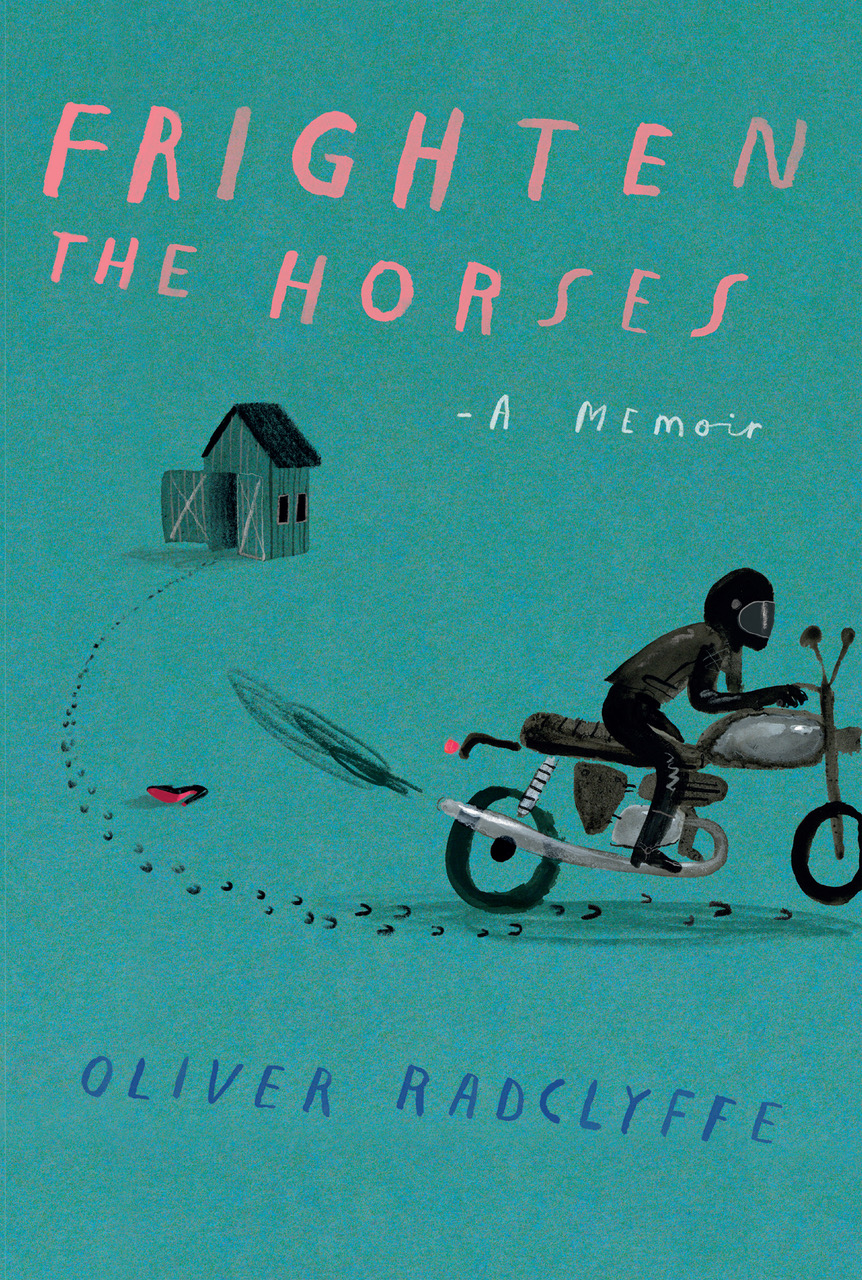 While that book was out on first submission, Roxane Gay announced she was opening her imprint. I had this thunderbolt moment: What if I rewrote this for Roxane Gay? I'd done her master class on writing through trauma, I'd seen her interview trans people, I knew who she was publicly, I knew the way she thought and what her values were. I thought, I can tell this story to this woman. I wasn't thinking Roxane Gay might buy the book, it was just an exercise in how to fine-tune it. I spent another nine months rewriting.
While that book was out on first submission, Roxane Gay announced she was opening her imprint. I had this thunderbolt moment: What if I rewrote this for Roxane Gay? I'd done her master class on writing through trauma, I'd seen her interview trans people, I knew who she was publicly, I knew the way she thought and what her values were. I thought, I can tell this story to this woman. I wasn't thinking Roxane Gay might buy the book, it was just an exercise in how to fine-tune it. I spent another nine months rewriting.
During resubmissions, I had an essay published in Electric Lit which Patrick Davis from Unbound Edition Press read, and he called me up and said, I want to commission you to write a book of essays. At that point I wasn't sure the memoir was going to be published. So I said okay. We signed the contract, and then Roxane got back to us. There was a minor panic about the timing of publications. Grove said, we can do this, but we need a year's grace between the two books. That meant I had to write the book in three months. So the difference between the two books? One took me 10 years and one took me three months. It was actually really fun to write to a really tight deadline.
Why tell your story?
For the first draft, the starting point was in 2011, when I needed to read books about people who were discovering their queer identities in midlife. They really didn't exist, particularly in my situation: married, masquerading as heterosexual, with kids. I was about to blow up my own life, and I desperately wanted to find somebody who'd been through this before. I'm Gen X; I wasn't going to start going onto Reddit forums. I started looking for books, and they didn't exist. I'd always wanted to write. That old cliché: write the book you want to read.
When I wrote the second draft, about transitioning, the focus shifted from writing for a queer audience to trying to be a bridge. There were so many books at that point written for trans people, I didn't feel the need to add to that canon. I was in a unique position to write to cis people because I had been in essentially a cisgendered heterosexual life for so long. When I first started transitioning, I said to all my friends, please don't hold back on the questions. Anything you want to know, even if you think it might be rude or weird or uncomfortable, ask. That's what I set out to do, but not in a didactic way.
Legitimately, I am less vulnerable than a lot of trans writers. I'm trans masculine, I'm white, I'm comfortably off, I live in this lovely house in the Connecticut suburbs with my children. I am not in a position of extreme danger and vulnerability. When I made the choice to write about some of the more intimate details, I thought, I'm going to do this because I can. I wanted people to understand that transness is not ideological. It's incredibly physical. The only way to show this is by going into those details about my body. It's not something you can think your way out of, or intellectualize your way out of--it's your body that is leading this journey. I leaned into that. I hope that other trans people do not feel that I have opened a door to invite cis people to ask those questions unsolicited! Because obviously it is curated and controlled by me, the writer. But I did feel it was important to go there.
The timeline in your writing jumps around.
Those jumps weren't there originally. In the early drafts I didn't have any backstory, but the real-time narrative really doesn’t make sense without it. An early reader said, you have to take all references to your privilege out of this book. Nobody is going to want to read about the poor little rich girl. I said yeah... I really can't do that. Because, firstly, none of this story makes sense without referring to my privilege. And secondly, I've spent my life pretending to be something that I'm not so that people will like me, and I am not going to do that anymore. I recognize that my privilege is going to put some people off, and that's okay. The story doesn't make sense without explaining what I came from and the processes I had to go through to figure out how to live my life as the person I am now, given what I came from.
I love the humor in a story that is often fraught.
That's the English; we tend to use humor to disguise discomfort and pain. I think it's in my DNA. It's a coping mechanism. I remember there were times I used to laugh till I was crying, my stomach was hurting, over things that were so absurd and ridiculous. It's a much more enjoyable way of releasing emotion than getting angry and throwing plates at the wall. Also, this journey was tricky and difficult, but compared to what some trans people have to go through, it wasn't devastating or catastrophic. I wasn't in any danger, crucially, which is unusual. So I felt like this was a book that could be written with a light touch without disrespecting what had actually happened.
I'm so happy at the moment about the quantity of books by trans people that are being published. We are in this amazing period where trans writers, trans artists, trans filmmakers, trans musicians--they're everywhere. I just went to see the Whitney Biennial and it's just full of trans artists. It's incredibly exciting: every one is different, every one is amazing and bringing something different and new to this canon. And that's important, because this isn't one experience. Nobody can be a spokesperson for the trans experience because we're all so different. The more we put out there, the more people can understand the diversity within this category. It's barely a category, really. --Julia Kastner
Book Candy
Book Candy
Librarians on the case: CrimeReads shared a "list of mysteries featuring bookish sleuths."
---
"David Bowie songs reimagined as pulp fiction book covers: Space Oddity, Heroes, Life on Mars & more," courtesy of Open Culture.
---
"Can you match the last line to the famous novel?" Mental Floss challenged.
Rediscover
Rediscover: Elias Khoury
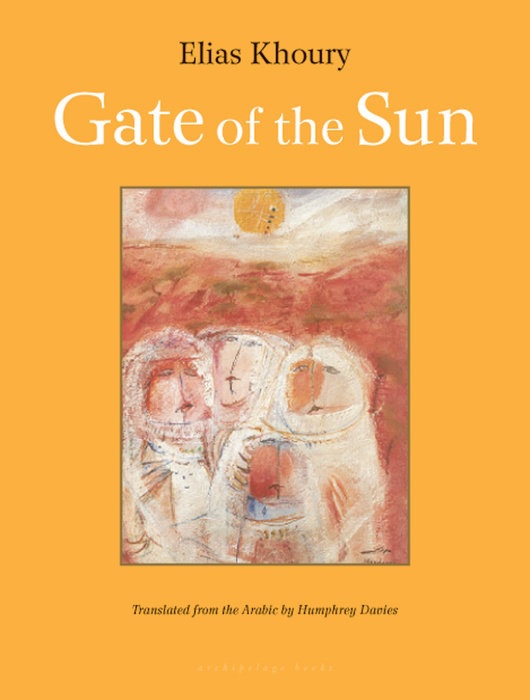 Lebanese author Elias Khoury, "who dedicated much of his writings to the Palestinian cause and taught at universities around the world, making him one of Lebanon's most prominent intellectuals," died September 15 at age 76, the Associated Press reported. In addition to his novels, Khoury wrote articles for several Arab media outlets over the past five decades.
Lebanese author Elias Khoury, "who dedicated much of his writings to the Palestinian cause and taught at universities around the world, making him one of Lebanon's most prominent intellectuals," died September 15 at age 76, the Associated Press reported. In addition to his novels, Khoury wrote articles for several Arab media outlets over the past five decades.
Born and raised in Beirut, he was a leading voice of Arab literature and "outspoken in defense of freedom of speech and harsh criticism of dictatorships in the Middle East," the AP noted, adding that he "had been known for his political stances from his support of Palestinians to his harsh criticism of Israel and what he called its 'brutal' settling policy in Palestinian territories."
From 1992 until 2009, Khoury was the editor of the cultural section of Lebanon's leading An-Nahar newspaper. Until his death, he was the editor-in-chief of Palestine Studies, a bulletin issued by the Institute for Palestine Studies in Beirut.
His first novel was published in 1975, but his second, Little Mountain (1977), about Lebanon's devastating civil war, was more successful. Bab al-Shams (Gate of the Sun) was released in 2000 and focused on Palestinian refugees in Lebanon since 1948. A film adaptation was made in Egypt.
Archipelago Books, which will publish his novel Star of the Sea next month, posted on social media: "We are mourning the loss of Elias Khoury. His fictions are layered with ideas that shift under foot. A public intellectual who wrote novels, essays, and reportage, Khoury led an exceptionally rich life. He was an unflagging champion of the Palestinian people and spoke out against dictatorships in the Arab world and beyond. In his youth, he cared for Palestinian refugees in refugee camps outside of Amman, and later joined the Fatah. For many, Khoury's novel Gate of the Sun, translated by Humphrey Davies, is a life-changing and life-affirming work. We have also published five other novels of Khoury's, each one formally inventive and ambitious, with deep emotional and political implications. Khoury's humor and compassion emerge again and again in his writing."
Yasmina Jraissati, Khoury's niece and agent, said, " 'Unwavering' is perhaps the word that best characterizes Elias. He was unwavering in his commitment to social justice, in his criticism of the corrupt Lebanese state and Arab dictatorships, in his championing of the Palestinian cause, and in his love for life despite all the horrors he bore witness to in his writing."
Little Mountain is available from Picador, and Gate of the Sun is available from Archipelago Books.


